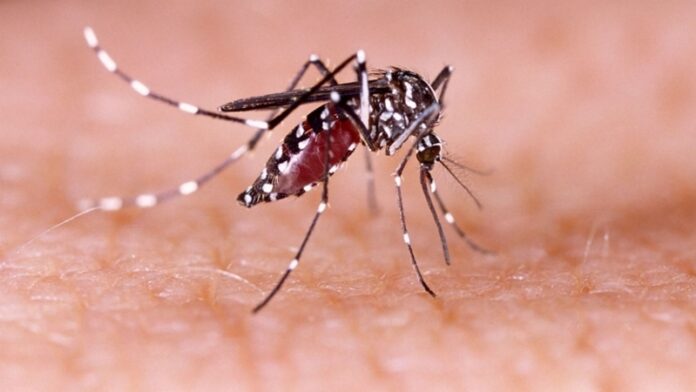Several cases of Dengue fever have been recorded in the Central Region.
Although the exact number of cases is not yet known, the Ghana Health Service (GHS) is intensifying efforts to investigate and contain the spread of the disease.
The Eastern Region has already recorded 11 cases, with over 100 samples sent to the Noguchi Memorial Institute for testing.
Speaking on the AM Show on JoyNews, the Head of Public Health at the Ghana Health Service, Dr. Franklin Asiedu Bekoe advised residents in affected areas to take precautions against mosquito bites during the day.
“The Central Region has also taken samples, and several have tested positive. Early detection is crucial for effective treatment. The Aedes mosquito, which spreads dengue, bites during the day, unlike the Anopheles mosquito, which bites in the evening. Preventing mosquito bites is essential, so we need to wear protective clothing and minimize the mosquito population,” Dr Bekoe emphasised.
“It is important for people to suspect dengue and seek medical attention. While dengue vaccination is not widely available, early detection and hospital management are key. Many cases can also be managed at home,” he added.
Meanwhile, Eastern Regional correspondent, Kofi Siaw, reports that small-scale miners have been urged to cover their pits after excavation to prevent mosquito breeding.
“These areas are close to forest zones and mining sites, where uncovered pits can become breeding grounds for mosquitoes. We advise miners to cover these pits to prevent water accumulation and mosquito breeding,” he said.
Deputy Eastern Regional Health Director, Dr. John Ekow Otoo, informed JoyNews that measures are in place to contain the spread, but individual commitment is crucial.
“So far, 103 people in the region are suspected cases. We’ve received samples from 56, with 11 awaiting results. We are ramping up our social mobilization and risk communication efforts. It’s important for the community to implement measures to prevent mosquito bites,” he said.

